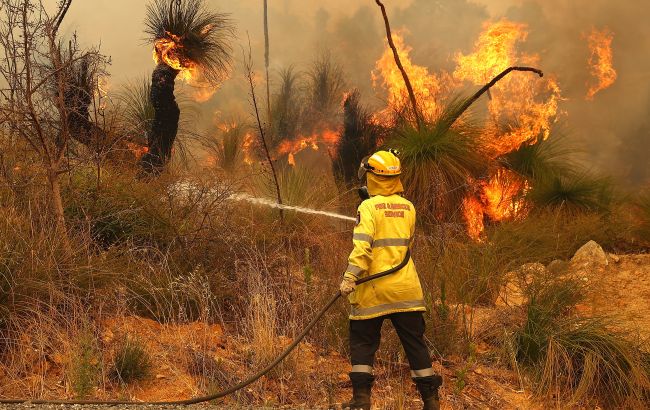NASA project to prevent wildfires may be shut down by Trump cuts
 Trump's budget cuts put NASA wildfire program in danger (Illustrative photo: Getty Images)
Trump's budget cuts put NASA wildfire program in danger (Illustrative photo: Getty Images)
NASA's groundbreaking FireSense program that aids in wildfire prevention and response may face an uncertain future amid proposed budget cuts, NBC News reports.
FireSense uses space tech to fight fires on Earth
High above Georgia's Fort Stewart Army base, NASA scientists recently flew over a controlled blaze — not to extinguish it, but to study it.
The 700-acre prescribed burn was part of FireSense, a NASA project that leverages advanced technology like infrared spectrometers to track wildfire behavior in real time. The goal: prevent, contain, and better understand wildfires.
"FireSense was born because NASA said: Wildfires are a big and emerging problem, and we're going to invest and we're going to use our skill set to help the rest of the government do its job better," explained Michael Wara, a climate policy expert from Stanford University.
Using instruments similar to those on satellites, FireSense provides critical data on fire intensity, air quality, and ecosystem recovery — insights that local, state, and federal agencies rely on.
"The goal is to take our innovative technology, go into the field with wildland fire managers and actually transfer that innovative technology so that they can use it on a wildland fire," added Jacquelyn Shuman, the project's lead scientist.
Budget uncertainty puts critical research at risk
Despite its success, FireSense now faces an uncertain future as the Trump administration signals deep cuts to NASA's Science Mission Directorate.
These reductions could gut Earth science projects like FireSense just as wildfire seasons grow longer and more destructive.
"The problem is getting worse," said Michele Steinberg of the National Fire Protection Association.
"We are seeing more fires in areas we don't normally see them and in seasons we don't expect them."
Former firefighter Harrison Raine, now a coordinator with FireSense, emphasized the stakes: "This is a deep personal issue for me… It takes every tool that we have, and science is a big one."
Though no final decisions have been made, the potential rollback has sparked concern among lawmakers.
"Cuts to crucial wildfire programs like FireSense put communities like mine… at extreme risk," warned Rep. George Whitesides (D-Calif.), whose district is still recovering from wildfires.
The loss of FireSense would mean losing years of progress in fire prediction and prevention. "It would be a shame to lose it, because it would be very hard to get back," Wara said.
Just days earlier, Trump's administration also halted funding for "road diets", street redesigns proven to reduce traffic crashes — marking yet another rollback of science-backed safety initiatives.

